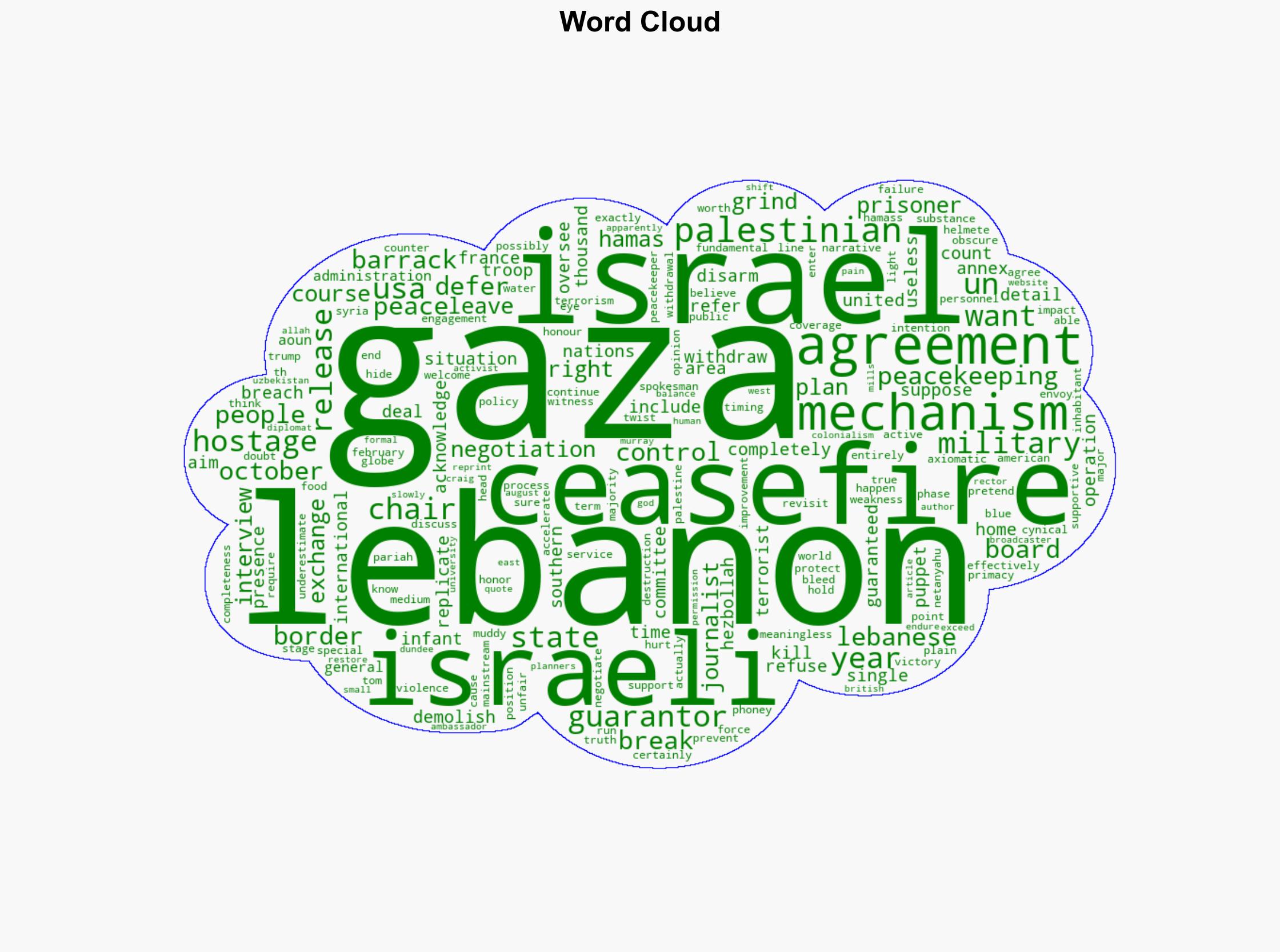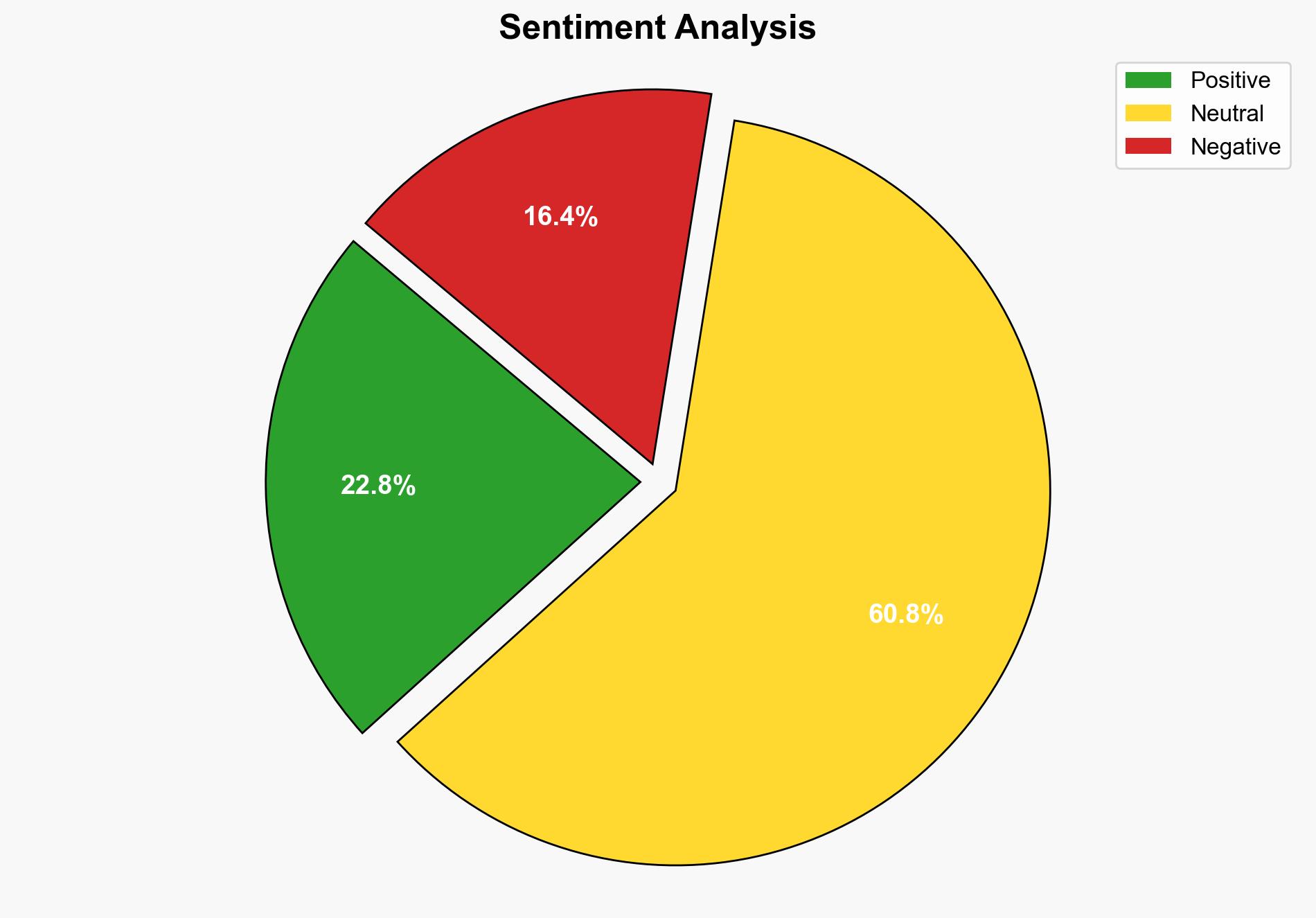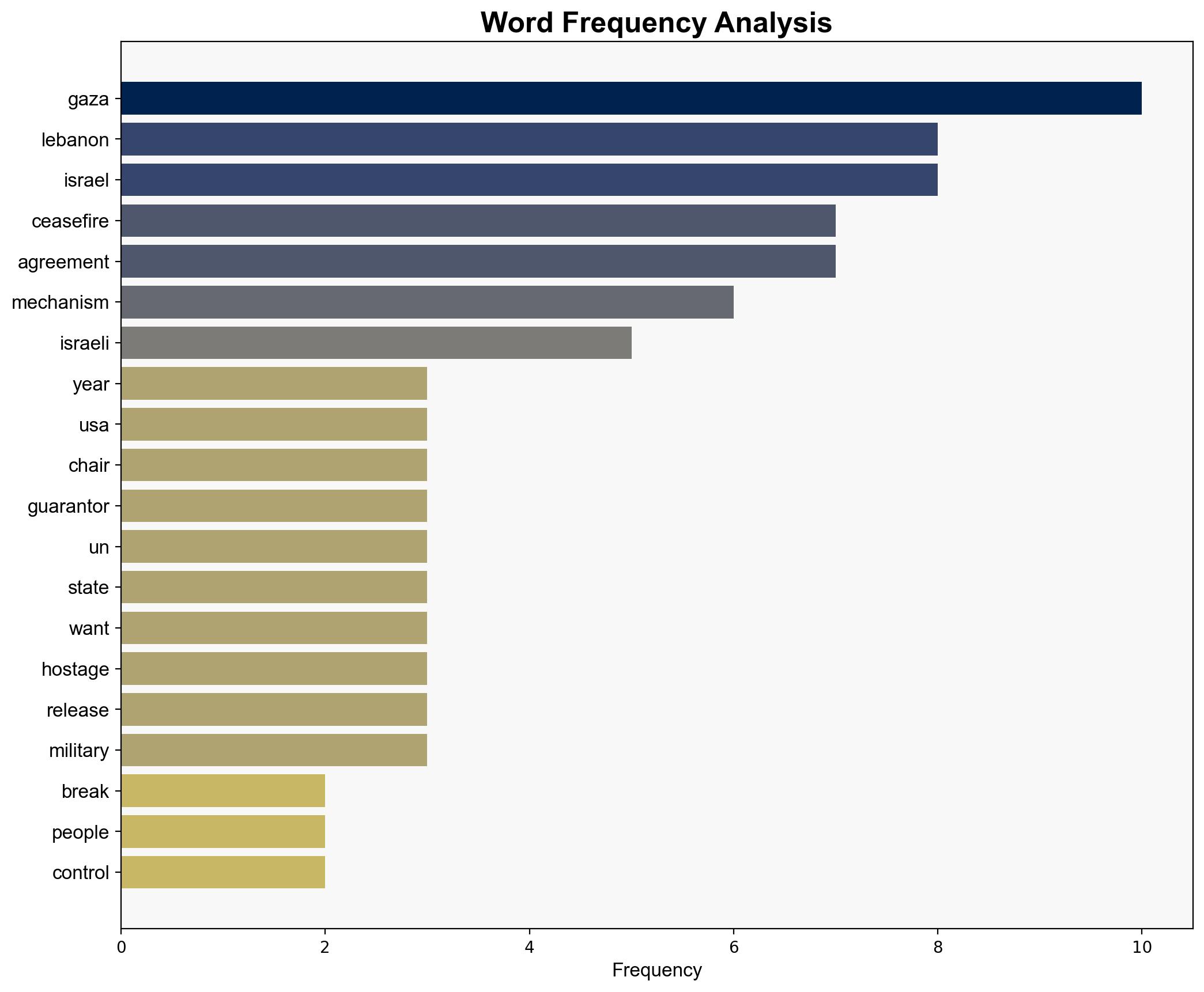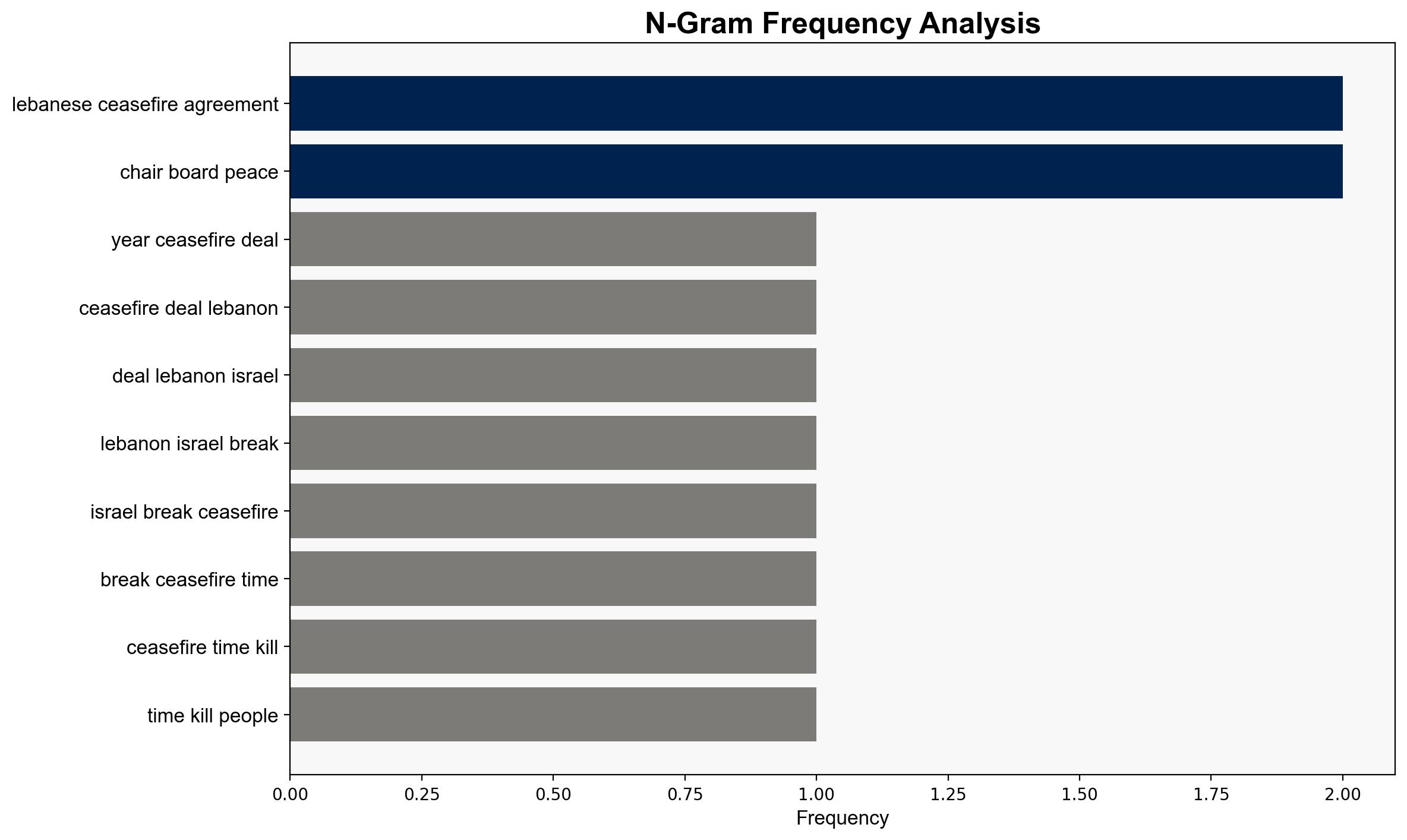A Warning from Lebanon – Antiwar.com
Published on: 2025-10-20
Intelligence Report: A Warning from Lebanon – Antiwar.com
1. BLUF (Bottom Line Up Front)
The strategic judgment indicates a moderate confidence level in the hypothesis that the ceasefire mechanisms in Lebanon and Gaza are primarily symbolic and lack enforcement, leading to continued instability. The recommended action is to advocate for a more robust international oversight mechanism to ensure compliance and address grievances effectively.
2. Competing Hypotheses
Hypothesis 1: The ceasefire agreements in Lebanon and Gaza are ineffective due to lack of genuine commitment from involved parties, particularly Israel, which is supported by the U.S. This results in continued breaches and violence under the guise of counter-terrorism operations.
Hypothesis 2: The ceasefire agreements are deliberately undermined by external actors to maintain a strategic advantage in the region, using the guise of counter-terrorism to justify military actions and maintain control over contested areas.
Using Analysis of Competing Hypotheses (ACH), Hypothesis 1 is better supported by the evidence, particularly the consistent pattern of breaches and the lack of effective international response.
3. Key Assumptions and Red Flags
Assumptions include the belief that international mechanisms are inherently capable of enforcing peace, and that all parties are acting in good faith. Red flags include the absence of concrete data on the effectiveness of the oversight mechanisms and potential bias in reporting due to political affiliations. The narrative may be skewed by the source’s perspective, indicating a possible cognitive bias.
4. Implications and Strategic Risks
The ongoing instability in Lebanon and Gaza poses significant geopolitical risks, including potential escalation into broader regional conflicts. Economic impacts could arise from disrupted trade routes and increased military expenditures. Psychologically, continued violence could further radicalize populations, complicating peace efforts. The lack of effective oversight increases the risk of unilateral actions by involved parties.
5. Recommendations and Outlook
- Advocate for an independent international body to oversee ceasefire compliance, with authority to impose sanctions for breaches.
- Engage in diplomatic efforts to bring all parties to the negotiation table, emphasizing the long-term benefits of stability.
- Scenario-based projections:
- Best Case: Strengthened international oversight leads to reduced hostilities and gradual normalization of relations.
- Worst Case: Continued breaches escalate into a full-scale conflict, drawing in regional powers.
- Most Likely: Ongoing low-intensity conflict with periodic escalations, maintaining the status quo.
6. Key Individuals and Entities
– Tom Barrack
– General Aoun
– Craig Murray
7. Thematic Tags
national security threats, geopolitical instability, ceasefire enforcement, regional focus





